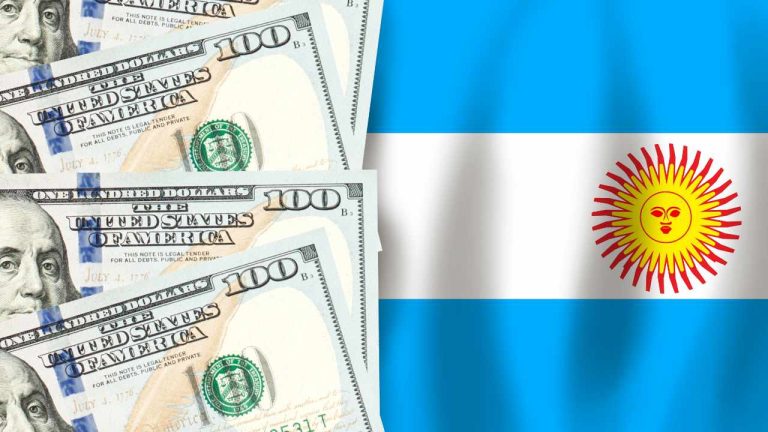Dollarization Can Lead to ‘Economic Contraction and Collapse’ of Argentine Economy — Former US Treasury Official
Publikováno: 20.8.2023
 The U.S. chairperson of the Official Monetary and Financial Institutions Forum (OMFIF) has characterized the Argentinian presidential hopeful’s plan to fully dollarize the economy as “a far too risky gamble.” Mark Sobel said full dollarization without an exit policy “could well lead to a far more serious economic contraction and collapse.” Javier Milei’s Unconventional Policy […]
The U.S. chairperson of the Official Monetary and Financial Institutions Forum (OMFIF) has characterized the Argentinian presidential hopeful’s plan to fully dollarize the economy as “a far too risky gamble.” Mark Sobel said full dollarization without an exit policy “could well lead to a far more serious economic contraction and collapse.” Javier Milei’s Unconventional Policy […]

The U.S. chairperson of the Official Monetary and Financial Institutions Forum (OMFIF) has characterized the Argentinian presidential hopeful’s plan to fully dollarize the economy as “a far too risky gamble.” Mark Sobel said full dollarization without an exit policy “could well lead to a far more serious economic contraction and collapse.”
Javier Milei’s Unconventional Policy Proposals
Argentinian presidential hopeful Javier Milei’s plan to dollarize the economy of the South American country is “a far too risky gamble,” Mark Sobel, the U.S. chairperson of the Official Monetary and Financial Institutions Forum (OMFIF), has said. According to Sobel, only “hard work” and austerity measures can extricate Argentina from its current problems.
During his campaigns, Milei has repeatedly touted full dollarization as the panacea to Argentina’s economic troubles. He also claimed to have mobilized funds needed to remove local currency from circulation and abolish the central bank.
In an op-ed published on Aug 17, the OMFIF chairperson acknowledged that Milei’s victory has seen global investors turn their attention towards the Argentine politician’s unconventional policy proposals. Sobel, a former U.S. Treasury official, argued however that while full dollarization is likely to end officials’ abuse of the discretion that comes with managing a currency, such a policy will bring its problems.
“Dollarisation is a potentially perilous ‘no exit’ strategy. It could sow the seeds for a huge contraction and crash, while deflecting attention from the tough work of fixing the economy,” Sobel argued.
The Collapse of the Convertibility Plan
To back his assertions, Sobel pointed to how the so-called convertibility plan — a currency board — contributed to Argentina’s soaring current account deficit and rising unemployment between the 1990s and the early 2000s. In addition, the country was also unable to fund its external deficits and lost market access.
This, in turn, set off a chain of events which ended with the collapse of the convertibility plan. According to the OMFIF chairperson, full dollarization without an exit policy for “dollarisation could well lead to a far more serious economic contraction and collapse.”
Concerning the painful steps that the new government needs to take, Sobel said:
Argentina needs sweeping fiscal consolidation to stop the perpetual cycle of excess borrowing, high and hyperinflation, default and instability. It needs to slam the brakes on reserve money creation. As painful as this will be, it’s necessary for achieving sustainability and a transition to a better future.
He added that Argentina also needs “extensive and sequenced liberalisation.” This cannot be achieved with multiple exchange rates or capital controls but with strong banks, the OMFIF chairperson said.
What are your thoughts on this story? Let us know what you think in the comments section below.